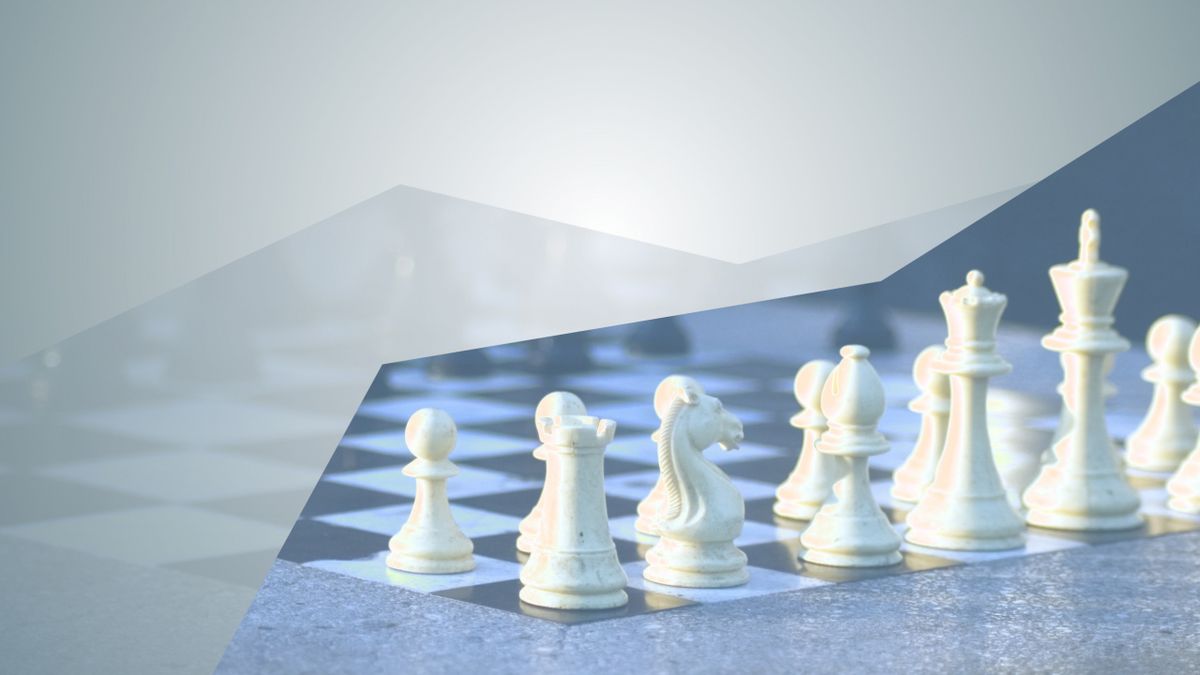
Summary
The anti-establishment “wake-up call” delivered by elections to the European Parliament demands urgent policy responses. Over the next five years, the European Union must implement a crash “emergency” programme of Europe-wide actions that addresses Europeans’ key concerns. The EU must be competitive in a rapidly-globalising world. The focus should move from austerity to sustainable growth-focused and job-creating policies. Citizens’ concerns about social and economic inequalities need to be tackled. Restoring Europe’s credibility and ensuring security must also be priorities.
About
On 9 October 2014, Friends of Europe, on the occasion of the launch of our think tank’s 15th anniversary year, holds two high-level events which form the highlight of our calendar: the ‘State of Europe’ high level roundtable and the President’s Dinner.
The ‘State of Europe’ roundtable brings together high-level discussants in the wake of the European elections to address the major issues facing the EU and the wider world, while the President’s Dinner is renowned for bringing together a few hundred European personalities from the worlds of politics, business, civil society and the media.
Chairman of the day
Etienne Davignon
President of Friends of Europe, Belgian Minister of State and former European commission vice-president
Schedule
It’s going to be a challenging five years – and Jean-Claude Juncker and his new European Commission team have their work cut out for them. Strong leadership will be required from the Commission but also from Donald Tusk, the new President of the European Council. The European Parliament will be a key player but much will also depend on the policies and actions of EU member states. Europe’s politicians have so far done a poor job of engaging citizens and listening to their fears and concerns. What are the key tasks and challenges ahead for Europe’s new leaders? Six months after many disaffected Europeans threw their weight behind populist, Far Right anti-EU parties, is there an EU-wide consensus on overhauling and re-orienting policies to tackle citizens’ priorities? Is the EU ready to put growth and jobs at the centre of a new agenda, replacing the focus on austerity? Will there be a new push towards a full EU banking union, with centralised supervision? Can there be are balancing of powers between EU and national authorities? How can a better job be done developing a credible, positive and relevant narrative for Europe to counter the simplistic and toxic anti-EU message of the populist and anti-European parties?
Co-chair
Mario Monti
Former Italian prime minister and Trustee of Friends of Europe
Introductory discussants
Bruno Maçães
Author of ‘Geopolitics for the End Time’ (2021) and the bestseller ‘Manifesto of Virtualism’, columnist for the New Statesman, Former Portuguese Secretary of State for European Affairs
Ulrike Guérot
Founder & Director of the European Democracy Lab and Author of “Why Europe must become a republic”
Moderator
Shada Islam
Managing Director at New Horizons Project
Europe’s manufacturing and service sectors face growing competition. Keeping ahead of the game requires that European policies focus on investing in people by improving workforce skills, opening up to innovation and investing in new technologies. What should the new EU team do to revive and repackage the competitiveness drive? What steps are being taken to complete the single market, especially in services? In the context of constraints for health budget, is there a risk that this sector loses attractiveness and that the European industry research and leadership may be weakened? What role can the “digital economy” play in boosting EU competitiveness? Will the signing of free trade and investment partnership agreements with the United States, Japan and possibly, China bolster Europe’s competitive edge? How best can the EU reconcile its skills shortages and economic need for immigration with the tough anti-foreigner and xenophobic message of the Far Right groups?
Co-chair
Joaquín Almunia
Visiting Professor at the London School of Economics and PSIA-Sciences Po Paris, former vice-president of the European Commission and Trustee of Friends of Europe
Introductory discussants
Jean-Paul Kress
President and Chief Executive Officer of Sanofi Pasteur MSD
Valdis Dombrovskis
European Commission Executive Vice-President for an Economy that Works for People
Moderator
Giles Merritt
Founder of Friends of Europe
Governments across the world face the challenge of integrating environmentally sustainable and resource efficient policies with economic growth and social welfare. EU leaders have confirmed that “sustainable development remains a fundamental objective of the European Union” but a number of unsustainable trends are impacting negatively on the EU’s green growth goals and require urgent action: additional efforts are needed to curb and adapt to climate change, to decrease high energy consumption in the transport sector and to reverse the current loss of biodiversity and natural resources. What should be the key green growth priorities for the new EU team? Is the shift to a safe and sustainable low-carbon and low-input economy losing momentum? What is being done to promote sustainable consumption and production, for instance by encouraging moves towards a circular economy?
Co-chair
Sony Kapoor
CEO of the Nordic Institute for Finance, Technology & Sustainability, Professor at the European University Institute (EUI), 2014 European Young Leader (EYL40) and Trustee of Friends of Europe
Introductory discussant
Janez Potočnik
Co-Chair of the International Resource Panel and Partner at SYSTEMIQ
Moderator
Chris Burns
Strategic Adviser at Friends of Europe
The recent focus on austerity policies has done much to eclipse the emphasis on progressive social policies that were a feature of the “Delors decade” at the end of the 1990s. But stubbornly high youth unemployment throughout the EU, reaching crisis levels in southern member states, coupled with the alarming implications of an ageing and shrinking population as well as rising unease about labour immigration, is putting Social Europe back near the top of the political agenda. Should the new EU leaders tackle head on the goal of a European Social Union or is that an idealistic bridge too far? How can recent European Commission proposals on tackling the social dimension of the Eurozone crisis be improved? What are the key concerns of European young people and how can they be tackled?
Introductory discussant
Reiner Hoffmann
Chairman, German Trade Union Confederation (DGB)
The incoming EU foreign policy chief Federica Mogherini faces tough challenges. Europe’s global role and reputation have taken a battering following the Eurozone crisis, disarray over the Ukraine conflict and discordant responses to the Arab awakening and the rise of the so-called “Islamic State”. Meanwhile Russia’s annexation of Crimea and destabilisation of Eastern Ukraine have brusquely up-ended the post-Cold War order. As the US retreats as the world’s super power, is Europe ready to take on more international responsibilities? Are Europe’s experiences in peace-building and crisis management relevant in an increasingly volatile world? Is the EU equipped to deal with the rise of Islamic extremism and terrorism on its southern borders? What needs to be done to re-energise EU relations with its eastern neighbours? Will tensions with Russia lead European governments to spend more on defence and take measures to improve capabilities and cooperation? What is the outlook for a genuine dovetailing of EU and NATO efforts after a decade of promises without much substance? Will the EU be able to pursue a common energy policy and reduce reliance on Russian oil and gas?
Co-chair
Jaap de Hoop Scheffer
Chair of Clingendael Institute, Dutch Minister of State, former NATO secretary general, former Dutch foreign minister, and Trustee of Friends of Europe
Anna Terrón
Chair of the United Nations University Institute on Globalization, Culture and Mobility, former Spanish secretary of state for immigration and emigration, and Trustee of Friends of Europe
Introductory discussants
Ben Judah
Visiting Fellow at the European Stability Initiative and author of “Fragile Empire”
James Rubin
Scholar in Residence at the Rothermere American Institute, Oxford and former US Assistant Secretary of State
Mary Fitzgerald
Trustee of Friends of Europe
The President’s Dinner is held after the annual State of Europe roundtable beginning with a welcome cocktail at 19.00.
Hosted by Friends of Europe President Viscount Etienne Davignon, the dinner is a Brussels landmark event that aims to be intellectually stimulating as well as entertaining. It brings together several hundred high-level guests, including leading European policymakers and senior representatives of civil society, business and the media to discuss some of the day’s topics in a more informal manner.
Hosted by
Etienne Davignon
President of Friends of Europe, Belgian Minister of State and former European commission vice-president
Speakers
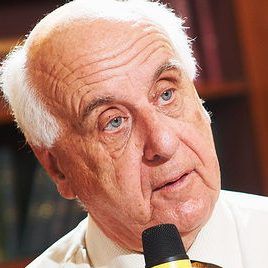
President of Friends of Europe, Belgian Minister of State and former European commission vice-president
Etienne (Stevy) Davignon is one of the few statesmen in Europe who has been actively involved in EU affairs from the beginning, from his early role as Chief of Staff to Paul-Henri Spaak to today. He has held high-level positions in both the public and private sectors, including as Vice-President of the European Commission, President of the Société Générale de Belgique, first President of the International Energy Agency and through various board mandates.
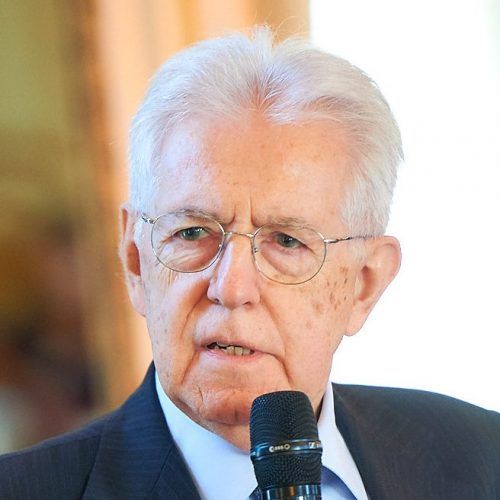
Former Italian prime minister and Trustee of Friends of Europe
A distinguished economist, Mario Monti has cemented his reputation as a committed supporter of the single currency and a talented negotiator leading a government of technocrats in the wake of the Italian debt crisis in late 2011. Most recently, he chaired the High-Level Group on Own Resources, a consultative committee of the European Union, aimed at proposing new forms of revenue for the European Union’s budget, which resulted in the final report “Future Financing of the EU”, arguing for new tax sources.
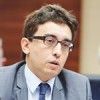
Author of ‘Geopolitics for the End Time’ (2021) and the bestseller ‘Manifesto of Virtualism’, columnist for the New Statesman, Former Portuguese Secretary of State for European Affairs
Bruno Macaes is a former Minister of European Affairs in Portugal and represented his country in Brussels during the eurozone crisis, the first Ukraine war and Brexit. He has published four books since 2018, mostly focused on geopolitics, China, Russia, and technology. Bruno has a doctorate in political science from Harvard and has recently held fellowships at Renmin University in China and the Hudson Institute. Since 2020 he is a fellow at the Wilfried Martens Centre in Brussels and since 2022 a member of the European Council on Foreign Relations. His latest book, Geopolitics for the End Time, was published in September 2021

Founder & Director of the European Democracy Lab and Author of “Why Europe must become a republic”
Ulrike is the founder and director of the European Democracy Lab, a think tank dedicated to the future of European democracy, which emphasises the European common good and the transnationalism of all European policy beyond the nation state. Ulrike is also professor of European policy and the study of democracy at Danube University Krems. She is also a regular commentator and writer on European and transatlantic affairs and author of “Why Europe must become a republic: A political utopia”.
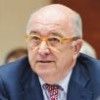
Visiting Professor at the London School of Economics and PSIA-Sciences Po Paris, former vice-president of the European Commission and Trustee of Friends of Europe
Joaquín Almunia is an experienced politician, who is currently a Visiting Professor at LSE and Sciences Po Paris. As the commissioner responsible for competition policy at the European Commission, he led efforts to control the state aid granted to banks during crisis and to ensure fair competition between businesses and companies. Prior to that, Almunia was responsible for economic and monetary affairs during Barroso’s first mandate as European Commission president.
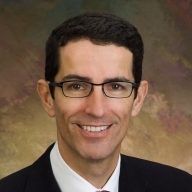
President and Chief Executive Officer of Sanofi Pasteur MSD
Kress leads Sanofi Pasteur MSD, a French joint venture based in Lyon since 1994, develops and markets, in 19 countries throughout Western Europe, a wide range of vaccines offering protection at all stages of life, enhancing the research portfolios of its two shareholders, the French Sanofi Pasteur, the vaccines division of Sanofi, and the American Merck.
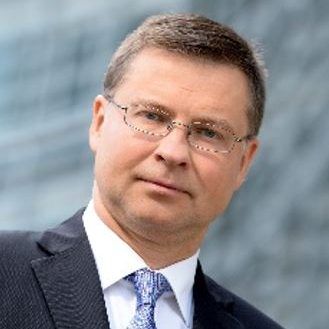
European Commission Executive Vice-President for an Economy that Works for People
Valdis Dombrovskis is a Latvian politician with a distinguished career at both the national and European level. In his current portfolio at the European Commission, he is responsible for the euro, social dialogue, financial services and the Capital Markets Union. In Latvia, he was his country’s longest-serving head of government with three terms as prime minister. He also served as Finance Minister, was a Member of the Latvian Parliament and was elected twice to the European Parliament.
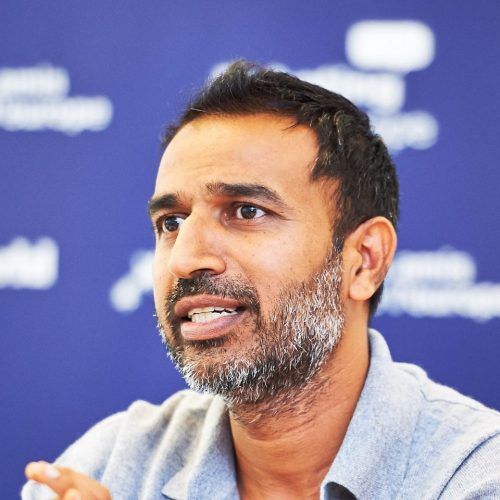
CEO of the Nordic Institute for Finance, Technology & Sustainability, Professor at the European University Institute (EUI), 2014 European Young Leader (EYL40) and Trustee of Friends of Europe
Sony Kapoor is an influential economist, financial sector expert and development practitioner, who has made a substantial contribution to financial reform and tackling the euro crisis. He currently leads the Nordic Institute for Finance, Technology & Sustainability, which promotes a fair, efficient and sustainable allocation of human, financial and natural capital, and is a Professor of Climate, Geoeconomics and Finance at the EUI. Kapoor is the Chairman and former managing director of the RE-DEFINE think tank, which advises the EU, central banks, large investors, governments, regulators and multilateral institutions on economic, fiscal, investment and financial policy. He serves as an advisor to the UCL European Institute and the UNEP on green finance. Previously, Kapoor worked for ICICI, India’s largest investment bank. He also co-founded the International Tax Justice Network and Europeans for Financial Reform and Finance Watch, as well as launched the inter-governmental Illicit Finance Task Force.

Co-Chair of the International Resource Panel and Partner at SYSTEMIQ
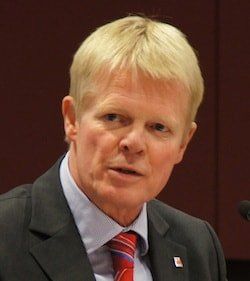
Chairman, German Trade Union Confederation (DGB)
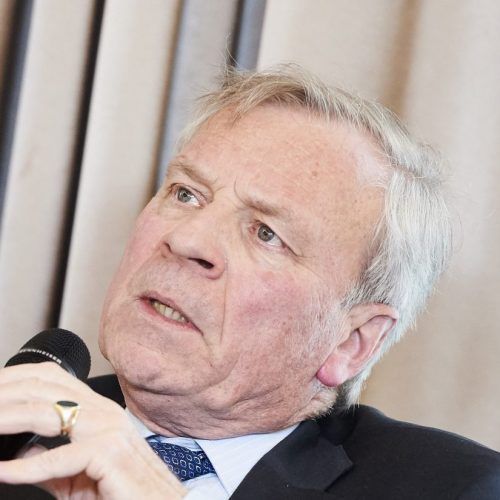
Chair of Clingendael Institute, Dutch Minister of State, former NATO secretary general, former Dutch foreign minister, and Trustee of Friends of Europe
Jaap de Hoop Scheffer is a Dutch politician who notably served as the 11th Secretary-General of NATO. He also previously worked for the Ministry of Foreign Affairs and the Dutch delegation of the NATO headquarters in Brussels. He now works as President of the Advisory Council on International Affairs (AIV) of the Netherlands, an independent body which advises government and parliament on foreign policy. Furthermore, he was appointed to the Pieter Kooijmans Chair for Peace, Law and Security at Leiden University.
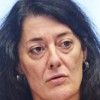
Chair of the United Nations University Institute on Globalization, Culture and Mobility, former Spanish secretary of state for immigration and emigration, and Trustee of Friends of Europe
With a rich political career spanning more than 20 years, Terron previously served as Spanish Secretary of State for Migration, Secretary for the European Union of the Government of Catalonia, and Member of the European Parliament. As President of Instrategies, Anna Terron offers strategic support to institutions, organisations and companies on managing diversity, immigration, asylum and international mobility. She is advised European Commissioner Cecilia Malmström on migration and Mediterranean issues. She currently serves as Chair of the Advisory Board of the United Nations University’s Institute on Globalisation, Culture and Mobility.
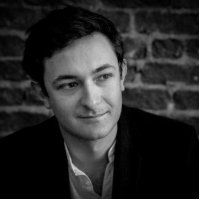
Visiting Fellow at the European Stability Initiative and author of “Fragile Empire”
Judah is the author of the book ‘Fragile Empire: How Russia fell in and out of love with Vladimir Putin’ and a visiting fellow at the European Stability Initiative in Istanbul. His reporting from across Russia – including on the Georgian War in 2008 and the Kyrgyz uprising of 2010, has been featured in several journals and newspapers.
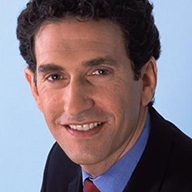
Scholar in Residence at the Rothermere American Institute, Oxford and former US Assistant Secretary of State
Rubin is a scholar in Residence at Oxford University and frequent commentator and analyst on world affairs and US foreign policy. He served under President Clinton as Assistant Secretary of State for Public Affairs and chief spokesman for the State Department. He was also a top policy adviser to Secretary of State Madeleine K. Albright and acted as a special negotiator during the Kosovo war to secure the demobilisation of the Kosovo Liberation Army.
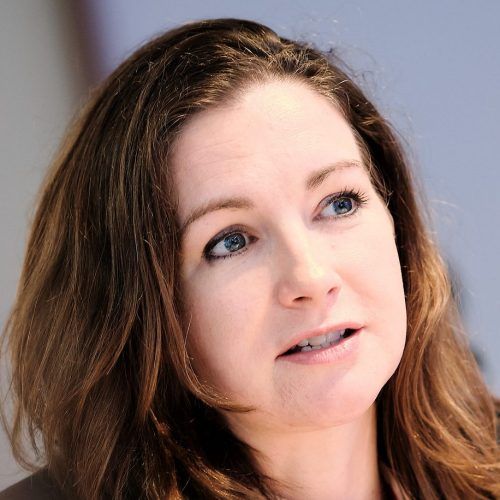
Trustee of Friends of Europe
Mary Fitzgerald is a researcher and analyst specialising in the Mediterranean region with a particular focus on Libya. She has consulted for a number of international organisations including in the areas of peacebuilding and civil society. She has worked with the International Crisis Group (ICG), the United States Institute of Peace (USIP) and the European Council on Foreign Relations (ECFR) among others. She is a Non-Resident Scholar at the Middle East Institute in Washington DC, an Associate Fellow at the International Centre for the Study of Radicalisation, King’s College London and an Associate Fellow at ISPI in Milan. Mary has also worked on wider initiatives with UNESCO, the Anna Lindh Foundation, the British Council and other cultural organisations. Her writing has appeared in publications including Foreign Policy, The New Yorker, The Washington Post, Financial Times and The Guardian.
Partners
Coorganized with

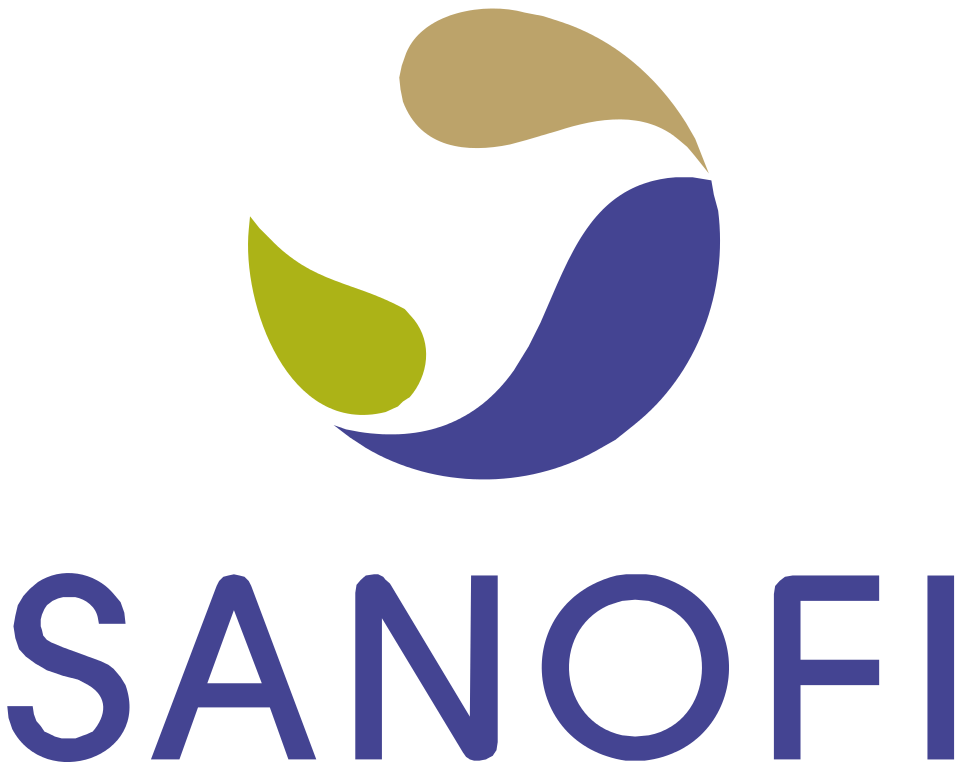

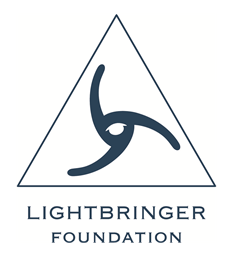
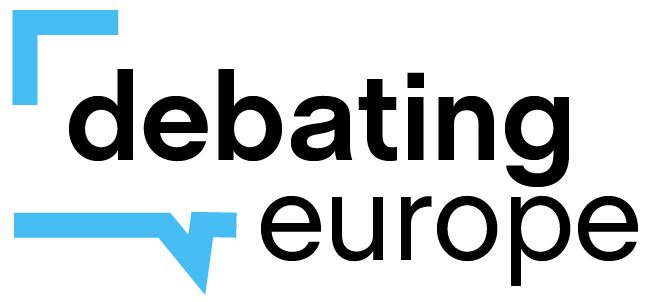

Continue
the debate on
- Debating Europe
